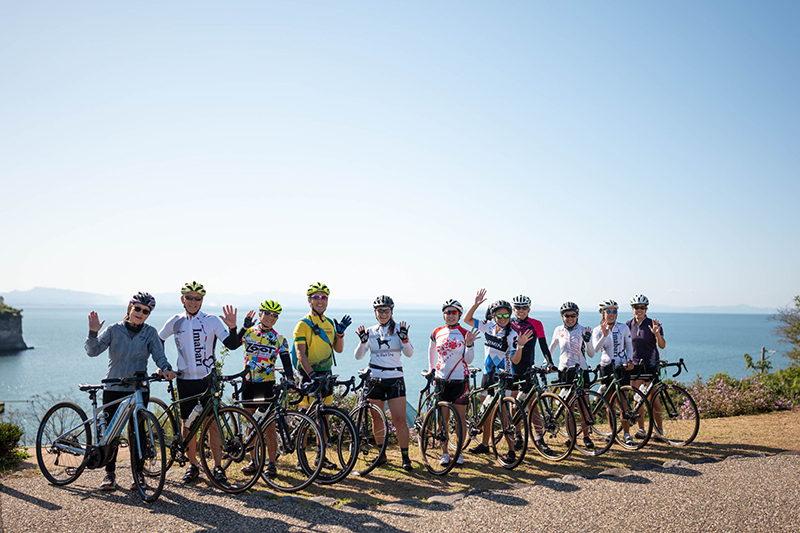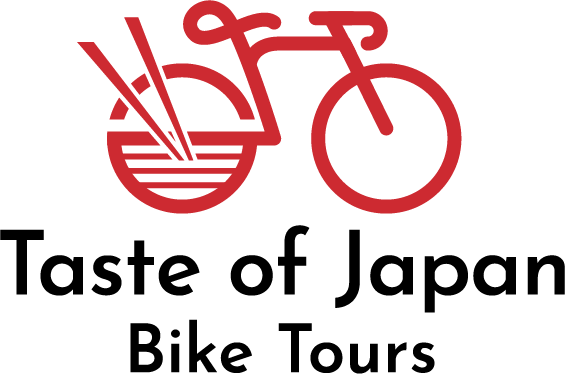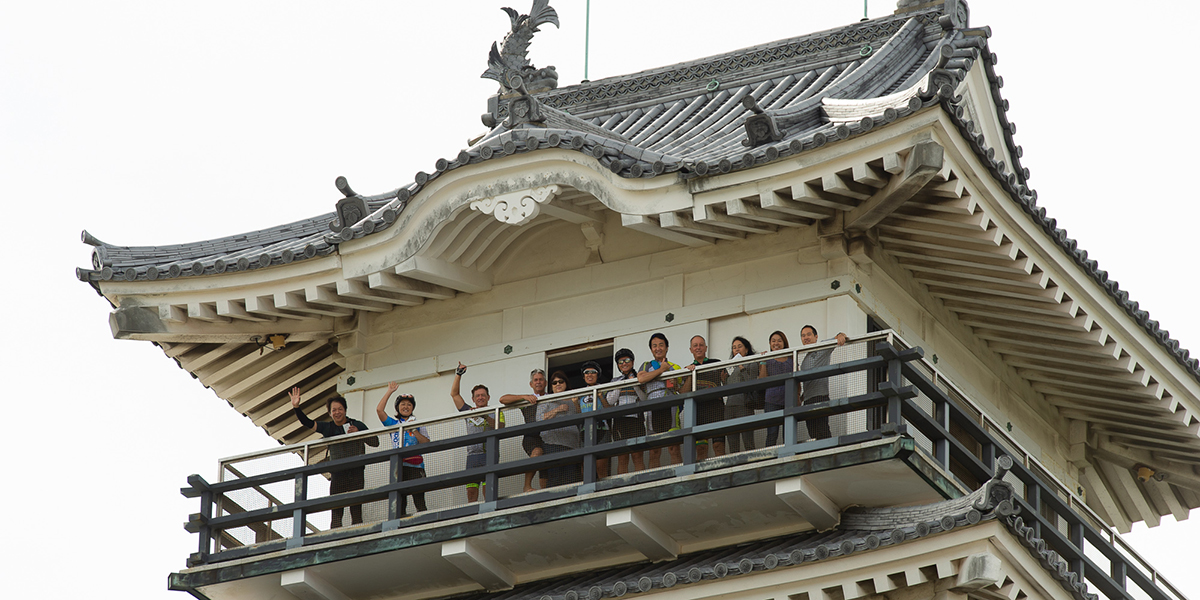
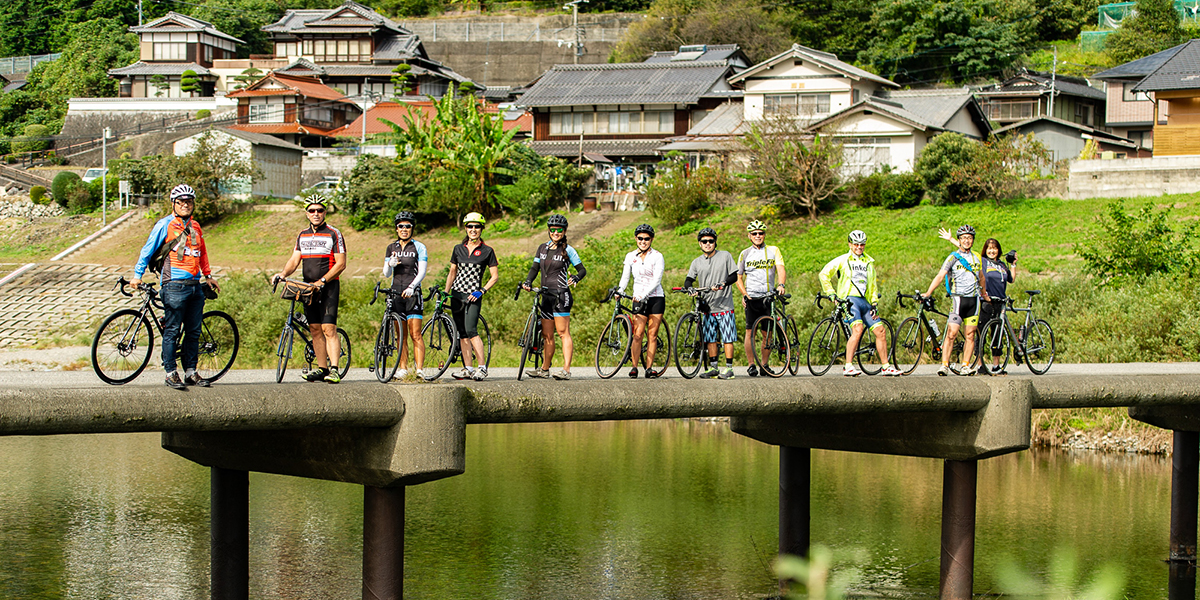


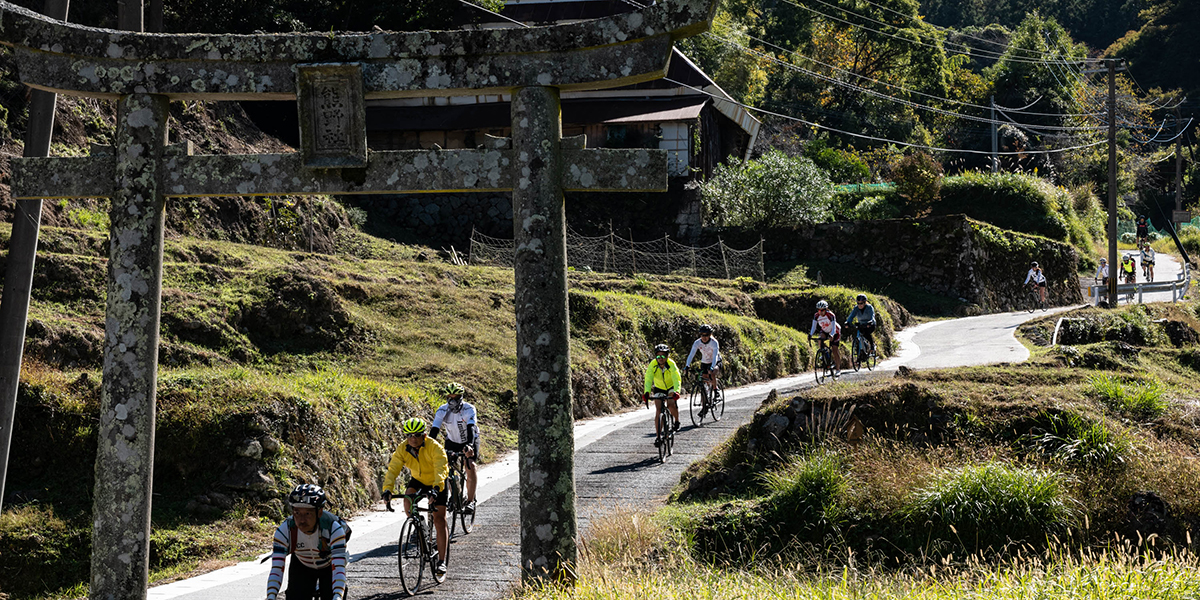

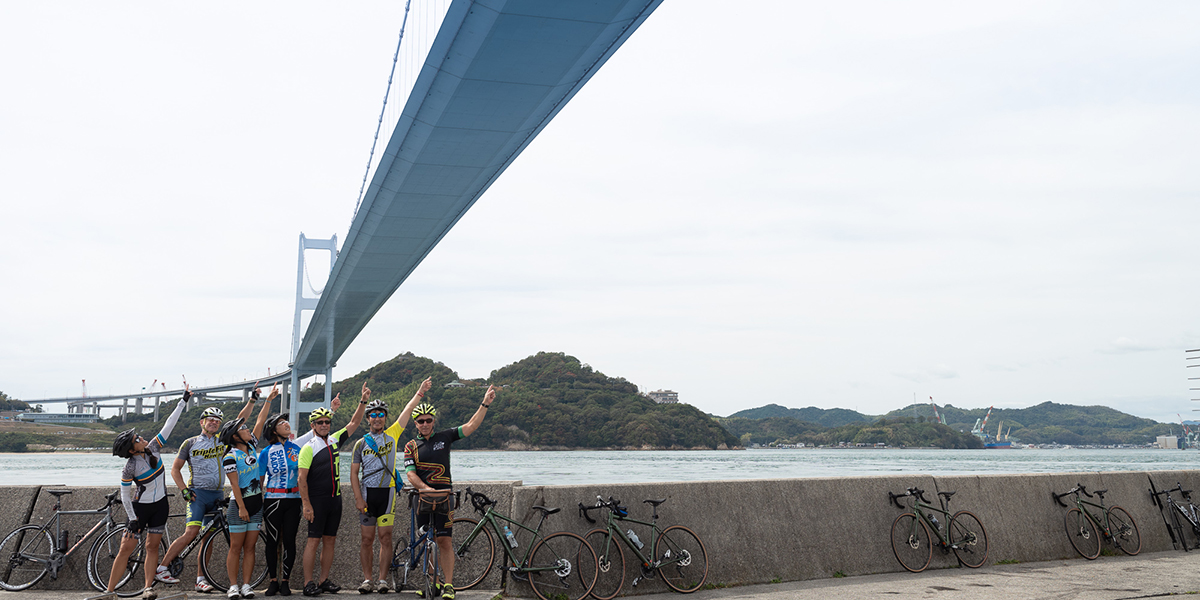

Welcome to Taste of Japan Bike Tours! We provide a once-in-a-lifetime cycling tour through the Japanese countryside, where you can eat local foods, meet new people, and experience an exciting variety of Japanese culture and heritage at every stop along your route. Taste of Japan Bike Tours offers fully supported cycling tours that are far more enriching than any typical tour by auto or rail. On our cycling tours, you get to know the people, the sights, the lifestyles at ground level — at a pace that lets you soak it all in. Immerse yourself in Japanese culture and make friends with the people who call Japan home. Your memories will last a lifetime.
TOP 3 GUIDED CYCLING TOURS

Oita Onsen Foodie Tour 9days (North part)
Oita Prefecture in Kyushu is a historically and culturally unique gem. Enjoy an invigorating cycling course, plenty of sightseeing, and delicious local foods.
Difficulty:Level2/3
2024 Date:
May28-Jun5(available)
Oct4-12(available)
Oct24-Nov1(soldout)
Nov8-16(available)

Shimanami & 5 castles to Kyoto 9days
The Shimanami Kaido and historical Sasayama Kaido.Explore five castles in western Japan and the original landscape of Japan. Immerse yourself in Kyoto’s best.
Difficulty:Level2/3
2024 Date:
Apr1-Apr9(soldout)
Oct4-12(available)
Oct24-Nov1(soldout)
Nov8-16(available)
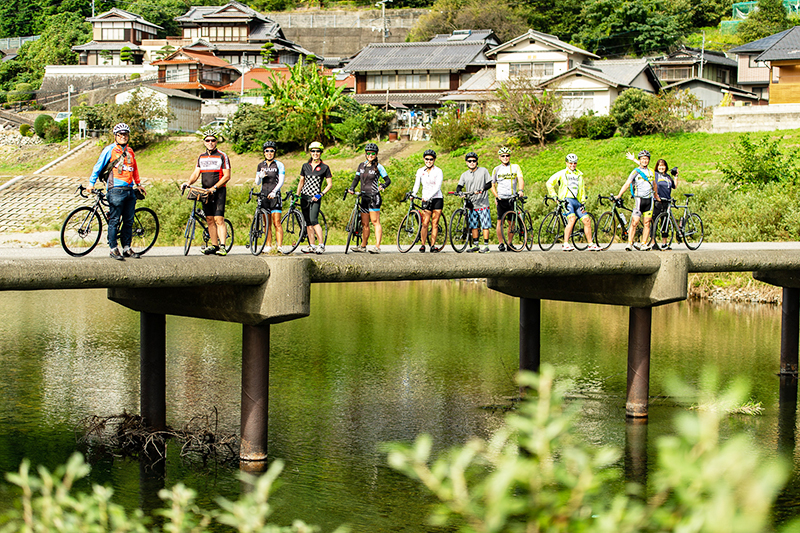
Shimanami Surf & Turf to Japan sea 9days
The Shimanami Kaido, which is written as “the way of the sea,” and the surf and turf along the most beautiful clear stream in Japan to the Sea of Japan. You will love it.
Difficulty:Level2/3
2024 Date:
Oct4-12(available)
Oct24-Nov1(soldout)
Nov8-16(available)
PRIVATE CUSTOM TOURS
Taste of Japan Bike Tours lets you book and plan a custom tour exclusively for family, friends, and teammates. See what you want of Japan, when you want and with the people you want. Our travel experts can fulfill virtually any request and make your group’s dreams come true!
Take a leisurely bike ride across awesome bridges connecting Japanese islands, stop for cultural treasures along peaceful country roads, eat local delicacies in the quaint villages you visit, and take part in agricultural activities, fishing, and hiking. In addition, your group will have access to local transportation, including trains, boats, and buses. Of course, you’ll also try on kimonos, drink green tea, and take plenty of pictures. We’ll make your dreams of a cycling tour a reality. Let us know what kind of vacation you want, and we’ll work with you to tailor the perfect trip.
